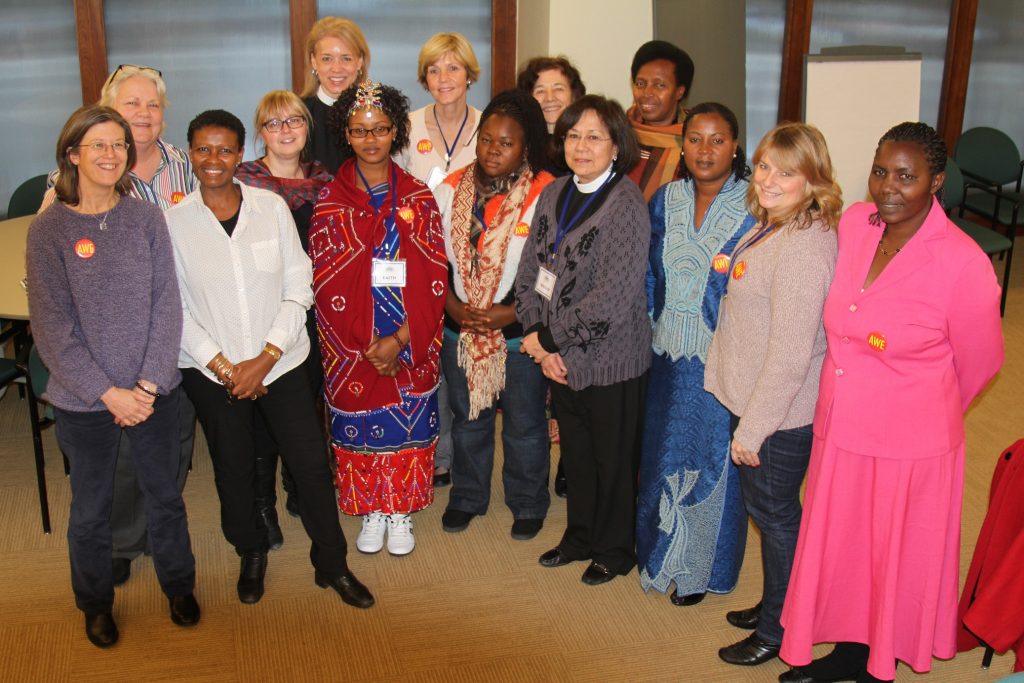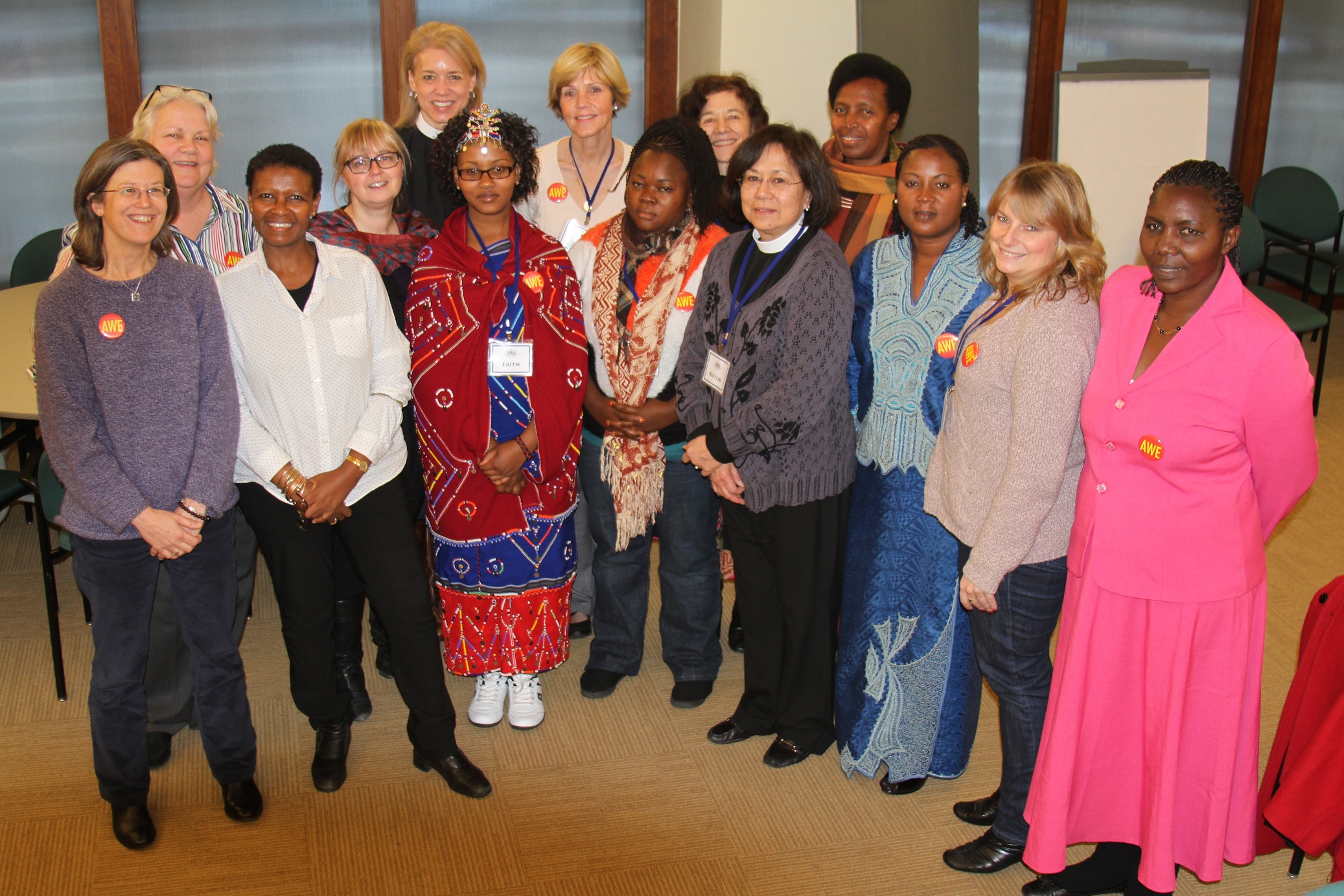
Photo courtesy Anglican Communion News Service
As Deputy Laura Russell of the Diocese of Newark sees it, spending three days in Indaba conversation about gender-based violence was a way to strengthen the relationships among grassroots leaders that are the real strength of the Anglican Communion.
“Women’s issues can help transcend cultural boundaries, especially when we get together to talk,” said Russell in a recent interview about the Indaba process on gender-based violence organized by Anglican Women’s Empowerment (AWE) in partnership with the Anglican Communion’s Continuing Indaba program. “In a short time, we made friends and connections and cemented a lot of relationships.”
The event was held at the Episcopal Church’s offices in New York March 1-3, just before the opening of the 57th Session of the United Nations Commission on the Status of Women (UNCSW).
The Zulu work “Indaba” entered the Anglican vocabulary in earnest about five years ago when the conversation process it describes was the format for the 2008 Lambeth Conference of Anglican Communion bishops. For its Indaba process, AWE, on whose board Russell serves, invited women from Africa and North America to talk about how to prevent violence against women and girls. Janet Marshall of Canada and Alice Mogwe of Botswana served as facilitators, Paula Nesbitt was the Indaba evaluator, and Kim Robey, retired executive director of AWE, organized the event.
“Through this open process, it became clear that to combat gender-based violence, we need to empower women by giving them access to money,” said Russell, an attorney for a New York-based non-profit. She noted that the movement for women’s economic opportunity has recently gained visibility in the United States through Half the Sky, a book, PBS series, and online movement created by New York Times columnist Nicholas Kristof and business executive Sheryl WuDunn.
Although the women involved in AWE’s Indaba process generally agreed on the definitions of gender-based violence, they soon discovered that empowerment means different things in different contexts.
“Our partners are African women in positions of authority,” said Russell of the five women who were able to attend the meeting from Burundi, Rwanda, the Democratic Republic of Congo, Kenya and Tanzania. “But even when they are leading evening meetings or have responsibilities as businesswomen or elected leaders, they have to be sure that they get dinner ready for their husbands ahead of time, clean up afterward, and get home by a certain time.”
At the same time, Russell said, she was fascinated to learn that the African women who were part of the Indaba process have already taken steps toward ending gender violence in their societies that it took American women decades longer to achieve. “Many of the African cultures represented in our group have a burgeoning class of educated women who insist that women deserve equality and that, for example, it’s not okay to beat your wife. In many states in America, for example, our struggle with gender violence issues was very recent. For example, marital rape was legal in New York State until 1984, so in many ways, our cultures are not too far apart in the issues we are facing and the progress we need to make.”
Opinions about gender violence don’t always break down across cultural lines, says Russell. Some women in the group thought that women need to stop dressing in what they called “provocative” clothes to avoid gender-based violence, while other women from both African and North American contexts countered that violence against women is incited by violent men, not by women’s clothing or behavior. “It was good for our partners to see that we in North American don’t think we have all the answers and don’t always agree,” she said.
What comes next? Anglican Women’s Empowerment hopes to build on the relationships they established by holding more Indaba conversations, including the prayer and Bible study, for girls and women both in the United States and in Africa.
The women also hope to sustain their connections by working together to combat gender-based violence in Africa. “The African women want to take what they learned back into their communities to strengthen their programs and connections with Anglican Women’s Empowerment,” said Russell.
Over the long haul, Russell thinks that gatherings like these are essential to the future of a global church “When and if there’s a rift in the Anglican Communion,” she said, “these are the relationships that will bring it back.”
***
Read more about the Indaba meeting in Episcopal News Service and in an article from the Anglican Communion News Service.
Learn about the 57th Session of the United Nations Commission on the Status of Women (UNCSW) from Episcopal News Service.


